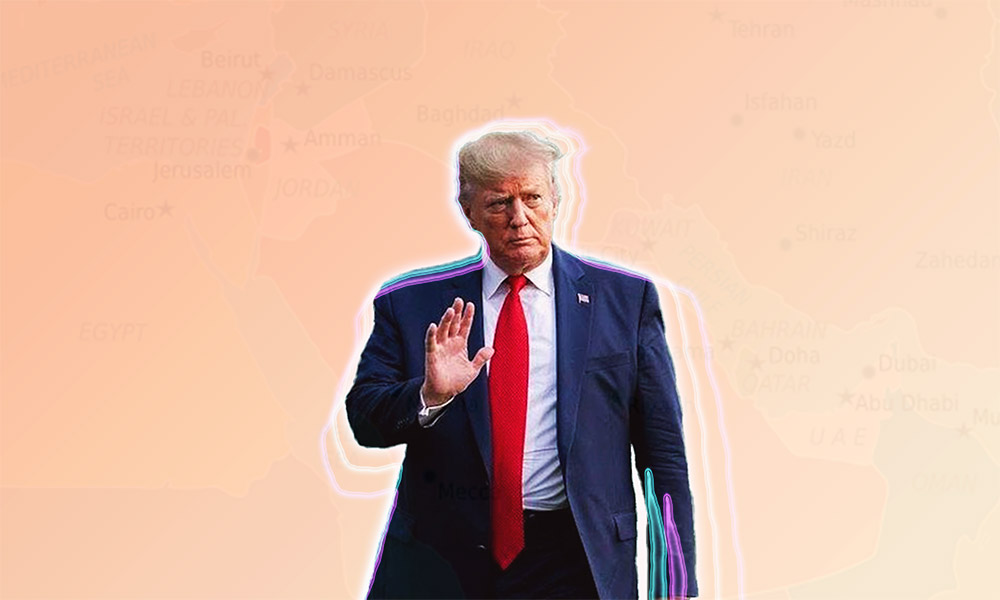Opinion | A Second Act for Trump and Israel
A tragedy? A comedy? And for whom?

In his first term, Donald Trump achieved in the Middle East something that few presidents before him could match: the Abraham Accords. He relocated the American embassy in Israel to Jerusalem, a move that presidents before him had vowed to do and then didn’t. He did not—repeat, did not—halt Iran’s rush to the bomb. Nor did he advance a resolution to the Israeli-Palestinian conflict.
Presidents have instincts, they have policies, and they have opportunities. And as we look at the impact of a second Trump term on Israel and the region, at best-case scenarios and worst-case scenarios, from Israel’s perspective, we must take all three into account. We also must consider the fact that “best” and “worst” are words loaded with ideological and interpretational meaning. Let’s say Trump encourages Israel to annex half of Judea and Samaria—the West Bank. Is that a best- or a worst-case scenario, or maybe something in between? Let’s say Trump signs a nuclear agreement with Iran. Is that a best-case scenario (because war is avoided) or a worst-case scenario (because trusting agreements with Iran is a fool’s errand)?
Start with instincts. Trump likes to be liked, and Israelis—overall—like him as president and appreciate his support. During the election campaign, they were one of the few nations whose preference for him over any competition was clear. Trump is also an egotist, with no true attachment to anyone but himself. He adores power; luckily for Israel, after a year of war the country looks powerful and competent. He adores winners; Israel isn’t yet a winner, but the prospects for a win seem improved. He tends to want to be bold, and some Israelis are ready to implement bold, some would say kooky, ideas.
What about policies? Trump doesn’t want America to be a global policeman. He doesn’t want to invest resources in other countries or regions. This could be a problem for Israel. It will have to make a case that it deserves to be an exception. Can it make the case? Sure. Israel—unlike, it might argue, Europe—doesn’t take U.S. funds without making its own investment in military power. It puts its money and manpower where its mouth is. And it never asks for U.S. boots on the ground. Its policy is in tune with Trumpian ideals: Help us with resources, give us political cover, and we will get the job done.
A best-case scenario for Israel could mean having those two wishes granted: The United States would give Israel equipment and ammunition that previous administrations limited and turn a deaf ear to the complaints and frustrations of international organizations and other humanitarians whose goal is to restrain Israel. Imagine (with hope or horror) what Israel could do in Iran if its air force is equipped with strategic bombers.
The worst-case scenario is always laden with new opportunities.
Last, and most important, are opportunities. Regardless of their instincts and policies, the ultimate test of all presidents is their ability to take advantage of opportunities. In that regard, Trump begins a second term facing a Middle East landscape much different from the one he faced just four short years ago. Israel has been devastated by war and social upheaval; it is a different country.
Syria is no longer a country. Lebanon is still an unresolved issue, but Hezbollah is much weaker. Gaza is in ruins. Yemen is a growing problem. Turkey is gaining, Iran is losing. The international courts attempt to meddle in regional affairs. Anti-Israel anger is more troubling than before.
Opportunities? Trump might look at all this and say: This is the best time to tame Iran or bring about a regime change. True, this isn’t in line with his established instincts or policies, but often opportunities trump both of these. Or he might say: This is the best time to seek a deal with Iran, since it will come to the table with few cards and a lot to lose.
Trump might look at the landscape and say: Now is the time to complete the Abraham Accords by bringing Israel and Saudi Arabia closer together. Would that be a best-case scenario? From the president’s perspective, it probably would be. From Israel’s perspective, it could be more complicated. Why? Because every policy has a benefit and a price. The best-case scenario is never cost-free, and the worst-case scenario is always laden with new opportunities.
Here’s a recent example of a worst-case scenario that happened: Hamas succeeds in a surprise attack and puts Israel under immense pressure. True, a year later Hamas is ruined, Hezbollah half ruined, the Assad regime gone. But we’d still say it was a worst-case scenario. For a best-case scenario, consider an Israeli-Saudi deal that reshapes the Middle East but comes with the price of, say, giving Israel autonomy to do as it pleases in the West Bank.
For the next few years, the best-case scenario is simple: for Trump to look at the many potential opportunities in the region and do something good with some of them. The worst-case scenario is also simple: for Trump to look at the many potential opportunities in the region and say something along the lines of, oh, I don’t care.
Shmuel Rosner is a senior fellow at the Jewish People Policy Institute, news analyst at KAN channel 11 and editor of the data-journalism website themadad.com.


